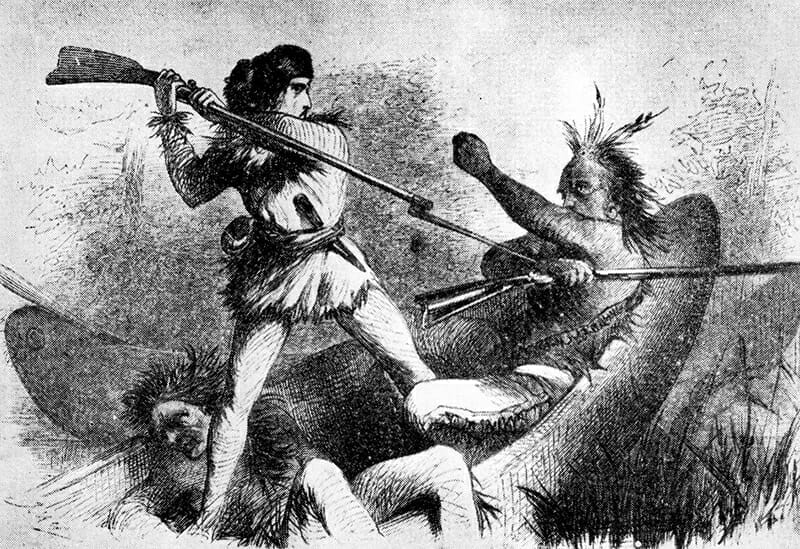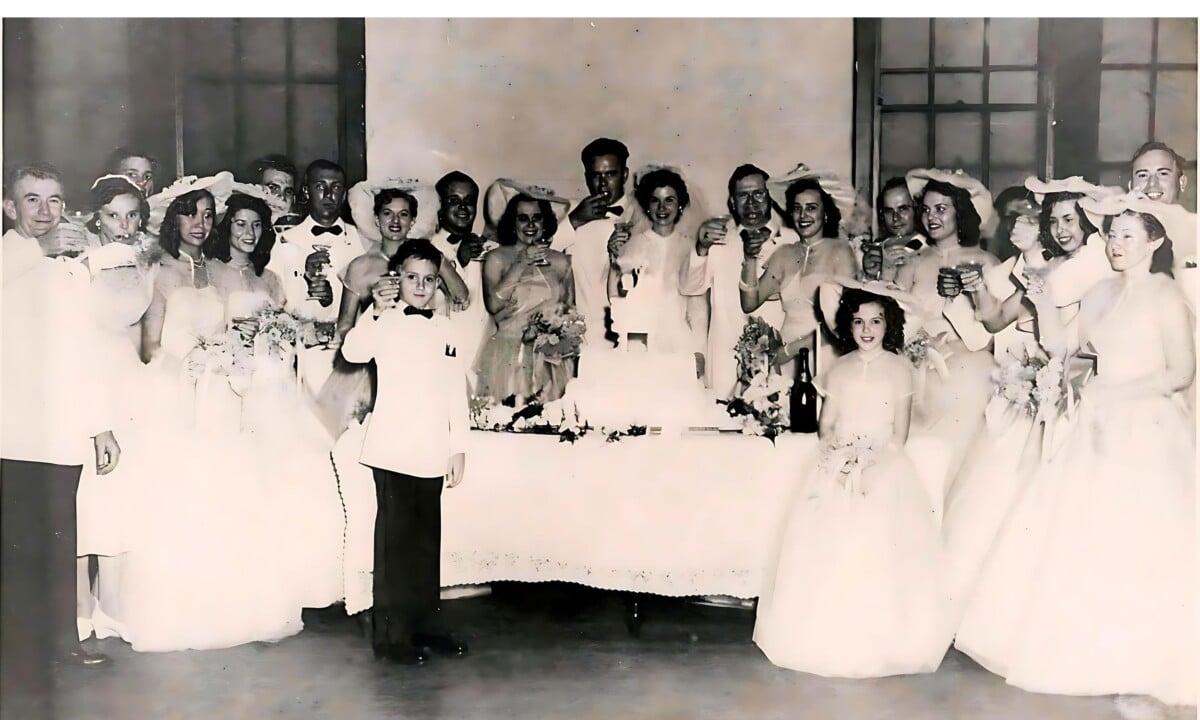
Back in March of 2003, I felt confident about “Who Am I?“, but I decided to dig deeper into my family history with the help of a genealogist. My aim was to uncover the origins of the “Dale” lineage within me. What she discovered was not what I expected and very little about the Dale family history.
One intriguing thing that emerged was Dr. John Thomas Dale, who lived from 1852 to 1886. He was from Maryland and was associated with a Mr. Daunoys, the sole attendee from his side at his wedding. However, beyond these scant details, much about Dr. Dale remains shrouded in mystery, leaving room for speculation and further exploration into our family’s past.
It is likely that one of General Sam Dale’s brothers (Joseph, Jesse or James) would have been Dr John Thomas Dale grandfather (not 100% sure, just yet).
Samuel Dale, known as the “Daniel Boone of Alabama,” was born in 1772 in Virginia. His family, originally from England, supported Cromwell during the Naseby conflict and later fled to Ireland after the Restoration.
Samuel had several siblings, including James and Joseph B. Dale. James married Martha Emerine Hall in 1840 in Lauderdale County. Other siblings mentioned are Jane and Sarah, with records indicating that Sam, Jesse, James, and Jane were buried in the same graveyard. Daleville Mississippi records state that Dale moved several families into this area with him
including his own siblings.
Samuel Dale, occupies a significant place in American frontier lore, his life an intricate tapestry woven with threads of adventure, resilience, and leadership. Born in 1772 in Virginia to parents of Scotch-Irish descent, Dale’s familial roots traced back to England, where his ancestors had initially sided with Cromwell during the Nasby conflict before seeking refuge in Ireland following the Restoration.
The narrative of Dale’s early years unfolds against the backdrop of burgeoning colonial America. In 1770, his father, also named Sam Dale, wed Mary O’Brian, an Irish Catholic, marking the union in Laughbricklin, Ireland. Subsequently, the young couple embarked on a voyage across the Atlantic, settling briefly in Pennsylvania before eventually putting down roots in Rockbridge County, Virginia, where Samuel, the subject of our story, first drew breath.
Dale’s upbringing was anything but ordinary, as he bore witness to the dramatic westward expansion that characterized his era. The untamed wilderness of the frontier, with its promise of boundless opportunity and lurking danger, became the backdrop against which Dale’s character was forged. Tragically, the specter of loss cast its shadow over his formative years, with both his parents passing away in 1792, leaving him to shoulder the weighty responsibility of caring for his eight younger siblings.
Standing tall at an imposing six feet two inches, Dale cut a striking figure in his community. His physical stature mirrored the indomitable spirit that defined his character, earning him admiration and respect from all who knew him. It was in this environment that Dale’s legend began to take shape, his actions and exploits echoing across the frontier lands.
General Sam Dale
Dalesville, Mississippi
“There isn’t a man this side of hell who can stop Sam Dale. Sam, you have been true to your country.”
Andrew Jackson
“My trust has been in God, and the greater the peril, the firmer my faith.”
General Samuel Dale
“You sleep here, Big Sam, but your spirit is a chieftan and a bravein the hunting ground”
Choctaw Warrior
The legacy of Samuel Dale transcends mere folklore, finding tangible expression in the landscape of Daleville, Mississippi, a testament to the enduring impact of his life and deeds. Yet, Dale’s story is not confined to the confines of a single settlement or era; it is a saga of exploration, conquest, and camaraderie that reverberates through the annals of American history.
As the tendrils of civilization extended ever further into the wild unknown, Dale found himself at the vanguard of progress, serving as a guide and scout for the United States Government. His knowledge of the land and its peoples proved invaluable as he led settlers through the treacherous territories inhabited by Native American tribes, navigating a delicate balance between cultures and interests.

However, Dale’s contributions to the fabric of American history extend beyond his role as a trailblazer. In times of conflict, his courage and resolve were put to the test, and time and again, he rose to the occasion. From the tumultuous events of Tecumseh’s uprising in 1811 to the pivotal Battle of New Orleans in 1814, Dale emerged as a steadfast beacon of leadership, his actions shaping the course of events and earning him a place of honor among his peers.

Indeed, the story of Samuel Dale is a testament to the resilience of the human spirit, a tale of triumph over adversity and of unwavering dedication to a cause greater than oneself.
As we reflect on his life and legacy, we are reminded not only of the challenges of the past but also of the boundless possibilities that lie ahead, waiting to be explored and embraced by future generations.

